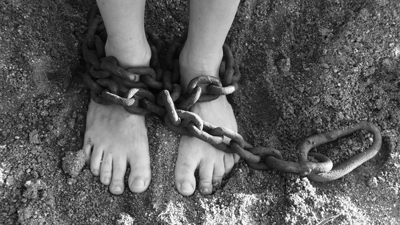 When the Holidays Aren’t So Merry—Making it Through the Season
When the Holidays Aren’t So Merry—Making it Through the Season
“What’s wrong with me?” my patient (fictional) asked, shredding the tissue in her hands as she wept on my couch. “Shouldn’t this be a happy time of year? Why can’t I feel Christmassy and jolly?”
And she is not alone. When you think of all of the people who are grieving and/or going through their first holiday season after divorce, widowhood, or the loss of a loved one, you realize that the memories can make the holidays more painful than happy at this time of year. Add to that the additional stress the season brings in the form of activities, shopping, and school events—well, you can see the problem. It’s like adding that last too-much drop of water to an already overflowing bucket.
What to do? If you are experiencing loss this time of year, your goal is this: to make it through. This is not the time to fill your chore list with handmade gifts (or gifts at all—who’s going to blame you this year?) or high stress dinners. If ever there was a time in your life to put you (and your children, if any) first, this is it. Exercise your “say-no” muscle with a firm and assertive smile and pass on committees, obligations, and entertaining. The people who might judge you—and believe me, there are fewer than you imagine—are simply not worth a second thought.
When the memories and tears come, allow them. What we resist, grows stronger, so don’t fight the feelings that arise. Tears actually expel cortisol, a stress hormone that is damaging to the body and needs to come out in order for you to be healthy.
Ask your friends and family for what you need this year, specifically. Do you need help making decisions on the children’s Christmas list? You probably have at least one friend who would love to help you. Do you need people to just listen to your grief without advising you? Tell them that you really just need an ear, not a response, from them.
These are just a few ideas; you know best what helps you stay strong. Just remember that you WILL make it through. Rest, heal, and wait for better days.
 By: Elizabeth Scott, MS
By: Elizabeth Scott, MS
 A Blog by Dr. Amy Johnson
A Blog by Dr. Amy Johnson We most often suffer more from what we FEAR than what actually HAPPENS, so it’s important for you to learn how to evaluate what you are thinking. Things always look less fearful when we face them head on vs. running or distracting ourselves into TV, alcohol, food, or work.
We most often suffer more from what we FEAR than what actually HAPPENS, so it’s important for you to learn how to evaluate what you are thinking. Things always look less fearful when we face them head on vs. running or distracting ourselves into TV, alcohol, food, or work.
 “The depression symptoms are just so bad again,” my patient (fictional) sighed as she settled in on my couch after a six month absence. “I’m having the guilt feelings, sadness, no energy, trouble sleeping, and I’m gaining weight because of stress eating. I know you scheduled me to come in once a month for a while after we finished the Plan of Care, but I thought I was cured and didn’t need to. Can we get me back on track?”
“The depression symptoms are just so bad again,” my patient (fictional) sighed as she settled in on my couch after a six month absence. “I’m having the guilt feelings, sadness, no energy, trouble sleeping, and I’m gaining weight because of stress eating. I know you scheduled me to come in once a month for a while after we finished the Plan of Care, but I thought I was cured and didn’t need to. Can we get me back on track?”
 to your doctor or health care provider to ensure that there is not an underlying medical cause to your symptoms.
to your doctor or health care provider to ensure that there is not an underlying medical cause to your symptoms.  “Why is getting along with my mother so hard?” said my client, sighing deeply as she wiped away tears in session. “I feel anxious all of the time, I’m depressed, and I can’t even hear her sigh of disapproval on the phone without wanting to run and hide. What am I doing wrong?”
“Why is getting along with my mother so hard?” said my client, sighing deeply as she wiped away tears in session. “I feel anxious all of the time, I’m depressed, and I can’t even hear her sigh of disapproval on the phone without wanting to run and hide. What am I doing wrong?” “I just can’t do ANYTHING right,” my client sighed as she settled further into the couch. ‘I should just accept that I am fat, depressed and a failure at relationships. Nothing will help me.”
“I just can’t do ANYTHING right,” my client sighed as she settled further into the couch. ‘I should just accept that I am fat, depressed and a failure at relationships. Nothing will help me.”